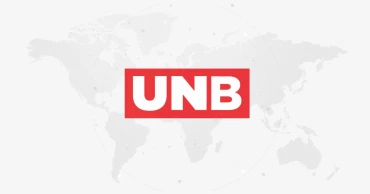WHO chief
WHO chief calls for suspension of 3rd Covid shots until year-end
The UN health agency chief Tedros Adhanom Ghebreyesus Wednesday urged the advanced countries to suspend their ongoing or planned administration of third shots against Covid-19 until at least the end of the year to ensure vaccine supplies for developing countries.
In early August, the World Health Organisation director-general had called for the suspension of the Covid-19 booster shots until the end of this month. But now he is seeking to extend the timeline for offering third shots, as the disparity in vaccine access for poorer countries has yet to be overcome.
Read: US okays Covid booster dose for those with weak immune systems
"A month ago, I called for a global moratorium on booster doses at least until the end of September, to prioritise vaccinating the most at-risk people around the world who are yet to receive their first dose," Tedros told a press conference.
"Today I am calling for an extension of the moratorium until at least the end of the year, to enable every country to vaccinate at least 40 percent of its population," the WHO chief said.
Some developed countries are moving ahead with booster shots to protect their populations amid recent surges in infections while developing countries have largely fallen behind in vaccination efforts against Covid-19.
According to Tedros, while 5.5 billion doses of the Covid vaccine have been administered globally, 80% of them have gone to high and upper-middle-income countries.
Read: What we know about Covid-19 booster shots
Booster shots are meant to strengthen vaccine efficacy, but the WHO takes a position of not recommending them under the present circumstances, citing a lack of sufficient data on efficacy and potential side effects of the available Covid vaccines.
The WHO chief also urged advanced countries to "fulfil their dose-sharing pledges" to developing countries by the end of September.
4 years ago
WHO chief describes current stage of pandemic 'very dangerous'
The novel coronavirus pandemic is at a very dangerous stage at the moment, despite the global community’s successes in fighting it, WHO Director General Tedros Adhanom Ghebreyesus said on Tuesday.
"While we have progress in controlling the pandemic, it remains in a very dangerous phase," the WHO chief said at a meeting of the ACT Accelerator Facilitation Council.
In the current situation, "the only way out is to support countries in the equitable distribution of PPE [personal protective equipment], tests, treatments and vaccines," he continued.
Ghebreyesus added that states with sufficient instruments to fight the novel coronavirus have already started to ease pandemic-related restrictions. "Meanwhile, countries without access to sufficient supplies are facing waves of hospitalizations and death," he added.
Also read: Global Covid-19 incidence rises 3% over week: WHO
The WHO director general also raised the issue during another event on Tuesday, while attending the United Nations Economic and Social Council (ECOSOC) High-Level Political Forum. In his address, Ghebreyesus noted "steep epidemic" in African, Asian and American countries.
"In fact, these cases and deaths are largely avoidable," he said, calling upon the global community to "use all the tools at our disposal to prevent transmission." According to Ghebreyesus, the pandemic demonstrated that "relying on a few companies to supply global public goods is limiting and risky."
"We have to learn the lessons of COVID-19," he said, calling upon the global community "to prepare for the next one."
In late December 2019, Chinese officials informed the World Health Organization (WHO) about the outbreak of a previously unknown pneumonia in the city of Wuhan, in central China. Since then, cases of the novel coronavirus - named COVID-19 by the WHO - have been reported in every corner of the globe, including Russia. On March 11, 2020, the WHO declared the coronavirus outbreak a pandemic.
Also read: 'Dangerous period' with delta variant: WHO
Since the start of pandemic, 183,934,913 cases have been reported worldwide, while the death toll stands at 3,985,022. The number of cases grew by 326,231 in the past 24 hours, while the number of deaths increased by 6,347.
The international partnership named the Access to COVID-19 Tools Accelerator, or ACT-Accelerator, was officially launched on April 24 by the WHO, the EU, France, and philanthropists Bill and Melinda Gates. As the WHO explained, the new initiative "is a unique partnership of many of the world’s international health organizations who have come together to share, and build on, individual expertise to create a powerful global solution that will ensure equity in access to tests, vaccines, treatments across the world with one goal: to reduce the burden of the COVID-19.".
4 years ago
Share Covid jabs out of self-interest: WHO
The growing gap between the number of vaccines being given in rich countries and those administered through COVAX is becoming “more grotesque every day”, the head of the World Health Organization (WHO) has said.
“In January, I said that the world was on the brink of a catastrophic moral failure unless urgent steps were taken to ensure equitable distribution of vaccines," the UN News quoted Tedros Adhanom Ghebreyesus, the WHO Director-General, as telling journalists at a regular news briefing on Monday.
“We have the means to avert this failure, but it’s shocking how little has been done to avert it," he added, noting that WHO has been working “day and night to find solutions to increase the production and equitable distribution of vaccines”.
Also read: Virus variants, vaccine inequity responsible for rising Covid caseload: WHO
‘False sense of security’
The WHO chief pointed out that while some countries are vaccinating their entire populations, others have no shots.
“The inequitable distribution of vaccines is not just a moral outrage, it’s also economically and epidemiologically self-defeating," he said, pointing out that some nations are vaccinating low risk, younger people at the cost of “health workers, older people and other at-risk groups in other countries”.
And because more transmissions mean more variants, Tedros upheld that the imbalance in jabs only provides “a false sense of security” as “the more variants that emerge, the more likely it is that they will evade vaccines”.
Also read: COVID infections drop 16% worldwide in one week: WHO
“As long as the virus continues to circulate anywhere, people will continue to die, trade and travel will continue to be disrupted, and the economic recovery will be further delayed," he spelled out.
Last Friday, WHO hosted a meeting on enhancing genomic sequencing of the coronavirus, to better monitor its evolution in the face of the many mutations that are raising international concern.
Tedros said that while knowing when, how and where the virus is evolving, is vital information, it is of limited use if countries do not work together to suppress transmission “everywhere at the same time”.
“If countries won’t share vaccines for the right reasons, we appeal to them to do it out of self-interest," he said.
AstraZeneca equity commitment
Tedros also told journalists that he had spoken to vaccine manufacturers on how to ramp up production, including the CEO of AstraZeneca, manufacturer of the Oxford University-AstraZeneca shots, which were temporarily suspended by a group of countries, mainly in Europe, amid concerns over blood-clotting statistics.
Germany, France, Italy and Spain, are among those who have begun using the vaccine again following reassurances from top regulators. On Monday, a large study in the United States, Chile and Peru, reportedly showed that the vaccine was 79% effective in preventing the illness and 100% effective against severe symptoms and hospitalisation.
“These data are further evidence that the Oxford-AstraZeneca vaccine is safe and effective," Tedros said.
He flagged that AstraZeneca is “the only company that has committed to not profiting from its Covid-19 vaccine during the pandemic” and the only vaccine developer that has made a significant contribution to vaccine equity, “by licensing its technology to several other companies”. This includes in Korea and India, where manufacturers are producing more than 90 percent of COVAX-distributed vaccines.
Sharing vaccine technology
“We need more vaccine producers to follow this example and licence their technology to other companies," underscored the WHO chief.
He noted that a year ago, Costa Rica and WHO had launched a mechanism called the Covid-19 Technology Access Pool or C-TAP, designed precisely to promote an “open-science model”, where licensing would occur “in a non-exclusive, transparent manner, to leverage as much manufacturing capacity as possible. So far, C-TAP remains a highly promising, but under-utilized tool".
Again, he argued that while WHO and partners can design and advocate for solutions to save lives, “we need all countries and all manufacturers to work with us to make them happen".
4 years ago
No room for complacency, despite drop in Covid cases: WHO
Confirming a drop in the number of Covid-19 cases globally for the fifth consecutive week, the head of the World Health Organization (WHO) has cautioned against complacency saying "the fire is not out" yet.
5 years ago
Covid: WHO lauds consecutive drop, but warns nations against complacency
Though the number of new Covid-19 cases globally has fallen for the third week in a row, the World Health Organization (WHO) has urged countries not to let up efforts to halt the virus.
5 years ago
WHO chief lambasts vaccine profits, demands elderly go first
The World Health Organization chief on Monday lambasted drugmakers’ profits and vaccine inequalities, saying it’s “not right” that younger, healthier adults in wealthy countries get vaccinated against COVID-19 before older people or health care workers in poorer countries and charging that most vaccine makers have targeted locations where “profits are highest.”
5 years ago
Covid: WHO chief calls on governments to vaccinate at-risk groups in next 100 days
The Director-General of the World Health Organization (WHO), Tedros Adhanom Ghebreyesus, has called for a “collective commitment” to get vaccinations underway worldwide for health workers and others who are at high risk of contracting Covid-19, in the next 100 days.
5 years ago
WHO chief calls for equitable access to Covid vaccines
World Health Organization (WHO) head Tedros Adhanom Ghebreyesus has said that two billion doses of “safe and effective COVID-19 vaccines” have been secured by the international equitable vaccine alliance COVAX and they will be ready for distribution as soon as they are delivered.
5 years ago
Covid isn't the only infectious disease threat to world, says WHO chief
In a race to “save lives, livelihoods and end this pandemic”, the head of the World Health Organization (WHO) has said that it's important to remember that COVID-19 is just one of a number of major disease outbreaks facing communities across the world.
5 years ago
WHO Chief urges donors to step-up funding to support poor countries to get vaccine
Mentioning the financing gap to provide COVID-19 vaccines for everyone, everywhere, is an urgent priority, World Health Organization (WHO) chief Tedros Adhanom Ghebreyesus said on Friday urged for stepping-up funding to support poorer countries.
5 years ago

.jpg)
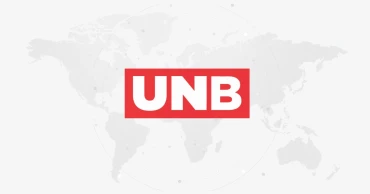
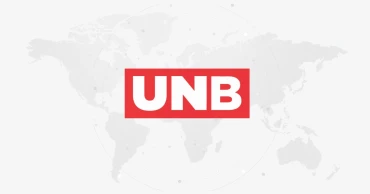
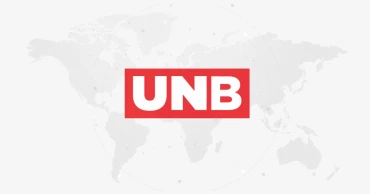
.jpg)
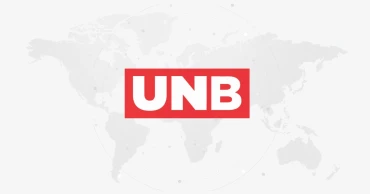
.jpg)
.jpg)
